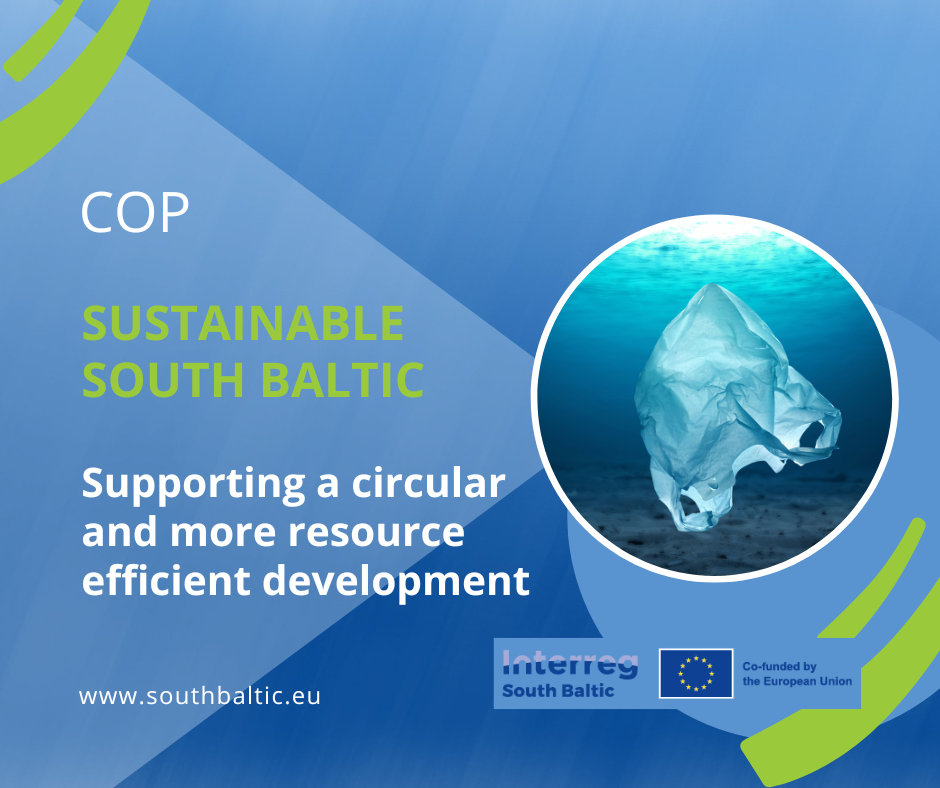Ocean plastic is a global pollution problem which heavily impacts aquatic marine life and diminishes biodiversity, e.g., through entanglement, toxicity flows of hazardous substances, and plastic ingestion. Plastics, and residual waste fractions, entering the South Baltic Sea (SBS) stems from both land- and sea-based sources, which over time dissolves into micro litter plastics. 80% of plastic waste ending up in the SBS stems from land-based sources, including urban areas.
The focus of the project will be to identify the problems and opportunities of collecting, reusing and/or recycling ocean-bound plastic waste. Bilaterally, these efforts will be supported by identifying the blue and green SMEs within the Region, including relevant environmental NGOs, knowledge institutions/technical universities and maritime clusters, which will either identify and/or co-create innovative collection methodologies of land- and sea-based flows of plastic waste.
This approach will improve the awareness level of the ecosystem challenges within the SBS across the quadruple helix. As an added value, it will also stimulate the innovative levels of blue and green SMEs within the program region, as how to collect and recycle macro litter plastic waste, which will contribute to the longevity and securing usage of the macro litter plastic waste, post-collection.

